Even if your title doesn’t include the word “Manager” you are likely responsible for managing a meeting, project, team, or initiative. In this issue of the Best of DTS Newsletter, you’ll find some managerial inspiration to help keep you on your toes.
How can leadership and ongoing training benefit your organization? Call and we’ll do a quick assessment for you to continue the conversation.
Edward Tuorinsky
Managing Principal
David T. Scott & Associates, LLC
Edward.Tuorinsky@consultDTS.com
571.403.1841
Basically Better: The Management Skills Industry Needs
 Brush up on the basics and lean in: it’s a new year for managers everywhere. With a refreshed mindset, this could be your best, most effective year.
Brush up on the basics and lean in: it’s a new year for managers everywhere. With a refreshed mindset, this could be your best, most effective year.
The basics are back. What’s old is new again. In 2018 managers in government and private sector alike will face daunting modern challenges, like adopting new technology or rethinking enterprise systems. Despite the new, the need for solid management skills is stronger than ever–though organizations might not see it.
A recent article describes the federal government as having great leaders, but not enough of them. The author, Mike Mears, a former CIA executive, asked agency leaders to choose between a candidate with great technical skills but bad leadership skills, and one without technical skills but great leadership. To our dismay, they indicated they would choose the bad leader. The article didn’t ask about how those same organizations would measure success, but it’s probably safe to say that they would value performance over knowledge.
What’s an organization to do? If you’re feeling like you need someone with the technical chops to navigate the technical landscape, then training or coaching for managerial skills is an investment that pays dividends. Here at DTS, we emphasize core competencies because they are vital to team morale – and thus a motivated and engaged workforce. There’s plenty of turn-the-ship-around stories in business to underscore that it’s how a team or organization responds to a leader that determines success.
With that in mind, our 2018 must-have managerial skills include:
- Leadership, to set priorities and develop and motivate employees to become top performers
- Communication, to explain the values, goals, plans and roles needed for success
- Collaboration, to bring talent and resources together and build strong, trusting teams
- Critical thinking, to consider impacts and options, as well as financial forecasting
- Execution, to translate broad initiatives to daily tasks and oversee project lifecycles
- Connections and networking, to gather the experts and guidance needed for thoughtful response to new challenges
A return to the basics, and a refresher for seasoned managers who may need to get out of a rut, is our prescription for 2018. Take a class, attend a workshop, read a book, choose a new mentor–there’s always room for improving managerial skills.
Tech Exec Brush Up: The essential factors
Tech leadership demands multidimensional skills. Part computer whiz, part cheerleader, part visionary, part critic–with dashes of sales, marketing and talk show host thrown in. Forbes Technology Council published the factors they find essential for success, including some stand-out qualities that apply to successful leaders in all markets. Our favorites from the list:
Trust your team. To push decision-making and ownership outward, place more trust in the people around you to do the right thing and bring their talent to bear.
Craft a compelling talent strategy. Organizations with clear, strong values, attract talent that embrace the same values and define their purpose and role as contributors. Make sure the story you are telling potential hires is the same experience employees are living.
Get involved in customer interaction. Mine insights from how customers engage with your technology or service. Understanding your customer experience can give you a new perspective, and help write the To-Do list of what needs to change or improve.
Virtual Managers Need a Different Set of Skills
Managing a virtual team–one spread across different geographies or offices, or one that works entirely virtually–demands more from virtual leaders. In addition to the managerial basics (see this issue’s feature article), they also need to be skilled at handling the interpersonal, communication and cultural aspects of virtual teams. Those skills include:
Strong interpersonal skills. Extroverted and creative, these leaders find ways to stay connected and reach out frequently and effectively to keep everyone accountable and in the loop.
Initiative. Like the team they lead, virtual bosses need to structure and manage their time – balancing long-term goals with pressing priorities, and managing without micromanaging, often through technology.
Flexibility. Virtual leaders have to wear many hats and juggle different priorities, so those who adapt or adjust easily, and help others on their teams to do the same, do well.
The most talented and hard-working mangers don’t always make the best virtual team leaders. A 2017 survey found nearly half of virtual teams are not meeting expectations and one quarter are failing. For organizations looking to promote or hire virtual managers, a more detailed list of exceptional virtual leaders is available.
Recommended Reading

DTS in the Community
DTS is heading back to school this spring. The firm will participate in the 2018 Spring Career & Internship Fair at The College of William and Mary to look for students and soon-to-be graduates for internships, junior consultants and business analysts. We’ll be at the Sadler Center on the afternoon of February 2, 2018.
About DTS
DTS consultants go far beyond just “getting the job done.” We continually find better, more efficient and more effective ways to satisfy the needs of our public- and private- sector clients. DTS provides full lifecycle Management and IT consulting services, and can support your organization by researching and answering specific questions, solving critical issues or helping you plan for the future. Among a crowded field of contractors, DTS stands out for the quality of our people, the power of our approach, and the impact of our results. www.consultDTS.com
Continue the conversation:
Email sales@consultDTS.com or call 571.403.1841


